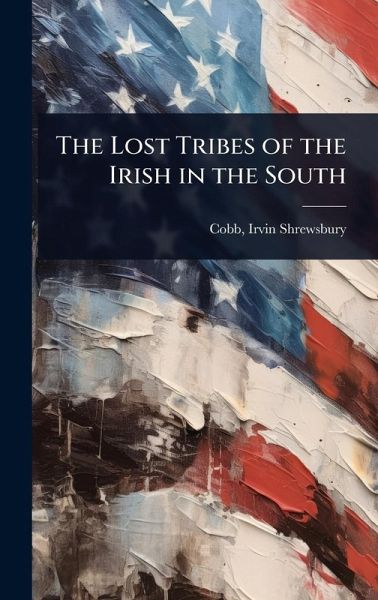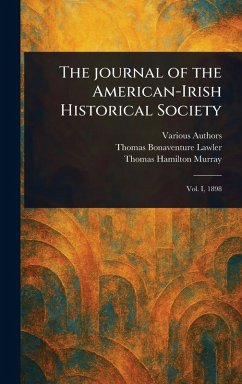
The Lost Tribes of the Irish in the South
Versandkostenfrei!
Versandfertig in über 4 Wochen
26,99 €
inkl. MwSt.
Weitere Ausgaben:

PAYBACK Punkte
13 °P sammeln!
"The Lost Tribes of the Irish in the South" offers a fascinating glimpse into the lives and experiences of Irish immigrants who settled in the Southern United States during the late 19th and early 20th centuries. Cobb explores the unique challenges and opportunities these individuals faced as they navigated a new culture and forged their identities in a region distinct from both their ancestral homeland and the more commonly recognized Irish-American communities of the North. This book provides valuable insights into the social dynamics, cultural adaptations, and economic contributions of a li...
"The Lost Tribes of the Irish in the South" offers a fascinating glimpse into the lives and experiences of Irish immigrants who settled in the Southern United States during the late 19th and early 20th centuries. Cobb explores the unique challenges and opportunities these individuals faced as they navigated a new culture and forged their identities in a region distinct from both their ancestral homeland and the more commonly recognized Irish-American communities of the North. This book provides valuable insights into the social dynamics, cultural adaptations, and economic contributions of a little-known segment of the Irish diaspora, shedding light on their enduring legacy and impact on the American South. It is a vital read for anyone interested in immigration history, ethnic studies, and the complexities of cultural identity in the United States. This work has been selected by scholars as being culturally important, and is part of the knowledge base of civilization as we know it. This work was reproduced from the original artifact, and remains as true to the original work as possible. Therefore, you will see the original copyright references, library stamps (as most of these works have been housed in our most important libraries around the world), and other notations in the work. This work is in the public domain in the United States of America, and possibly other nations. Within the United States, you may freely copy and distribute this work, as no entity (individual or corporate) has a copyright on the body of the work. As a reproduction of a historical artifact, this work may contain missing or blurred pages, poor pictures, errant marks, etc. Scholars believe, and we concur, that this work is important enough to be preserved, reproduced, and made generally available to the public. We appreciate your support of the preservation process, and thank you for being an important part of keeping this knowledge alive and relevant.












